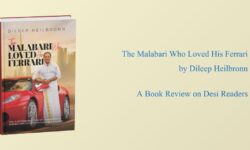Literature vs Language? Is this even a discussion? Or, there’s some seriousness about it?
In the grand tapestry of human expression, literature and language stand as inseparable companions, their dance echoing through the corridors of history, culture, and the very essence of our shared human experience. Picture this: a linguistic ballet, where words pirouette on the stage of the narrative, crafting tales that transcend time and space. Can you fathom a world where one exists without the other? A realm where language doesn’t give life to the symphony of stories, and literature doesn’t find its voice in the linguistic nuances that paint emotions on the canvas of our minds? Join me in unravelling the thrilling mystery that binds literature and language, where every word is a brushstroke and every story a masterpiece waiting to be discovered. Buckle up, dear reader, for we are about to embark on a journey where the boundaries between words and worlds blur, and the magic of their interplay unfolds in exhilarating harmony!
Navigating the Language vs. Literature Debate: A Comprehensive Exploration
The halls of academia echo vibrant debates, and one perennial discussion that captivates scholars in the realm of language and literature revolves around the dichotomy of language-centric versus literature-centric perspectives. It’s a clash of titans, a nuanced discourse that transcends the confines of academic corridors, influencing how we perceive and interact with the cultural tapestry that language and literature weave. So, let’s embark on a captivating journey, delving into the intricacies of this dialectic dance between words and narratives.
In the Blue Corner: The Language Advocates
Picture a group of scholars passionately championing the cause of language preservation. These language advocates are akin to cultural custodians, holding the torch for the intrinsic connection between language and identity. In their corner, they find inspiration in linguistic theories, with Benjamin Lee Whorf and Edward Sapir taking the spotlight. Whorf’s linguistic relativity hypothesis suggests that language moulds thought and cultural perceptions. Sapir, on the other hand, stresses the symbiotic relationship between language and culture. For language advocates, preserving linguistic diversity isn’t just about communication; it’s about safeguarding cultural identities.
In the Red Corner: The Literature Enthusiasts
Now, turn your attention to the literature enthusiasts, a group equally sincere in their conviction that the heart of human experience lies in the narratives spun by literature. They draw inspiration from literary theorists who dance on the periphery of linguistic theories. Roland Barthes and Mikhail Bakhtin are their guiding stars. Barthes, with his “death of the author” concept, elevates the reader’s interpretation, making literature a dynamic space. With his dialogic theory, Bakhtin orchestrates a symphony of diverse voices within literature, portraying it as a reflection of universal human experiences. For literature enthusiasts, it’s not just about words; it’s about the profound exploration of the human condition.
English Literature: A Global Odyssey with Bhabha and Said
As the debate unfolds, English literature emerges as a global player, its influence spanning continents. Homi K. Bhabha’s concept of the “third space” resonates in the corridors of global literary discourse. This notion explores the hybridity of cultures, perfectly encapsulating the global impact of English literature. Enter Edward Said, whose work on Orientalism challenges Eurocentric perspectives, unravelling the intricate threads woven into the fabric of English literary narratives. English literature, in this narrative, becomes a dynamic force shaping cultural intersections and challenging historical imbalances.
Hindi Literature: A Tapestry of Cultural Roots with Stuart Hall
Shift the lens to Hindi literature, where linguistic preservation intertwines with cultural roots and regional identity. Stuart Hall’s encoding/decoding model becomes a guiding light, emphasizing the dynamic relationship between culture and language. For advocates of Hindi literature, preserving the language isn’t just about communication; it’s about safeguarding the unique tapestry of cultural expressions and regional identities.
The Synthesis: Chomsky, Bakhtin, and the Quest for Harmony
Amidst the clash of perspectives, there emerges a quest for synthesis, a harmonious dance between language and literature. Noam Chomsky, with his universal grammar theory, provides a theoretical framework for understanding the interplay between language and thought—the narrative shifts to Mikhail Bakhtin, whose dialogic theory seamlessly embraces both linguistic and literary dimensions. The synthesis seekers, inspired by these scholars, envision a middle ground where the richness of language and the depth of literature coalesce.
In Conclusion: A Call for Harmony in the Debate
As we conclude this exhilarating exploration of the language vs. literature debate, it becomes evident that both camps contribute to the vibrant mosaic of intellectual discourse. The language advocates, with their commitment to cultural preservation, and the literature enthusiasts, unravelling the complexities of human experience, find common ground in the synthesis seekers’ quest for harmony. It’s not a clash of titans; it’s a dialogue that enriches our understanding of the intricate relationship between words and narratives.
So, dear students of language and literature, let this be an invitation to dance in the intersection of linguistic nuances and literary narratives, to explore the profound symphony created when language and literature embrace. The debate isn’t a battleground; it’s a vibrant marketplace of ideas where each perspective contributes to the rich tapestry of human understanding. Step into this intellectual carnival, and let the discourse unfold, for in the dialogue between words and stories lies the magic that shapes our perceptions of the world.
By Ashish for Desi Readers
